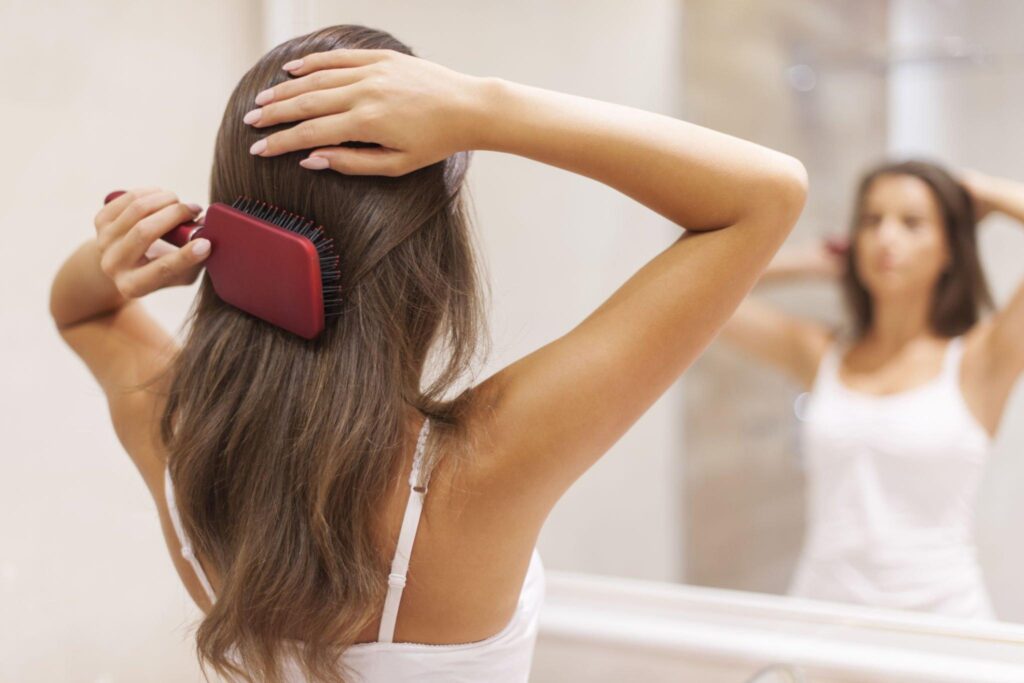Hair Care
Unlock Your Hair’s Potential: 10 Tips for a Lifetime of Strong and Beautiful Hair
Who doesn’t want strong and beautiful hair? We all dream of having luscious locks that turn heads wherever we go. But achieving and maintaining healthy hair isn’t always easy. It might be overwhelming to know where to begin with the wide variety of products and treatments available. Fret not, because we have put together a list of 10 tips to unlock your hair’s potential and ensure a lifetime of strong and beautiful hair.
Symptoms of Hair Loss
It’s time to pay attention! Here are some common symptoms of hair loss that you should be aware of:
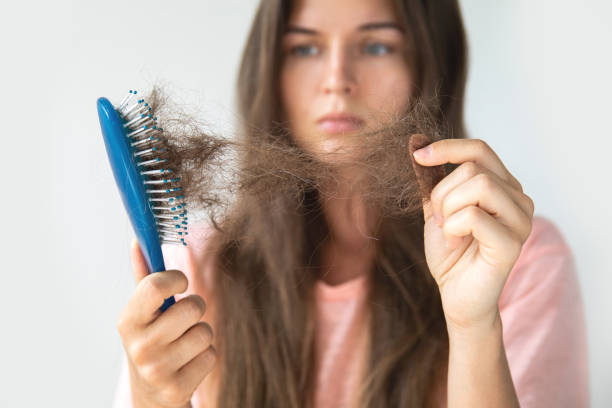
1️⃣ Increased hair fall: Finding more hair strands on your pillow, brush, or in the shower drain? Excessive hair shedding could be an early sign of hair loss.
2️⃣ Receding hairline: If you notice your hairline moving backward or a widening forehead, it might indicate the beginning stages of male or female pattern baldness.
3️⃣ Thinning hair: Gradual thinning of hair all over the scalp is another symptom to watch out for. It may start as a widening part line or a noticeable decrease in hair volume.
4️⃣ Bald patches: Developing smooth, circular bald spots on the scalp, eyebrows, or beard area can be a sign of a condition called alopecia areata.
5️⃣ Itchy or painful scalp: Persistent itching, tingling, or discomfort in the scalp can sometimes accompany hair loss. This might be due to inflammation or underlying scalp conditions.
10 Common Causes of Hair Loss
Are you worried about hair loss? Don’t fret, you’re not alone! A lot of individuals lose their hair at some time in their life. Understanding the common causes can help you take steps to prevent or manage this issue. Here are 10 common causes of hair loss:
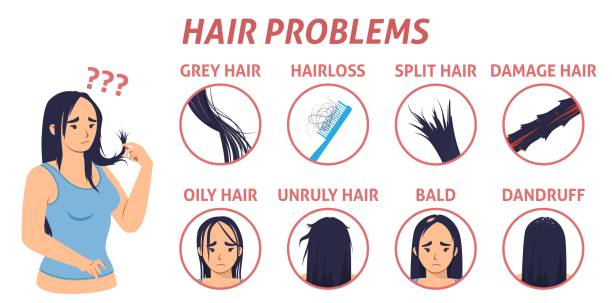
- Genetics: The most frequent cause of hair loss is hereditary baldness, often known as male or female pattern baldness. If it runs in your family, you may be more prone to experiencing it.
- Hormonal Changes: Hormonal imbalances due to pregnancy, menopause, or thyroid disorders can disrupt the hair growth cycle, leading to excessive shedding.
- Nutritional Deficiencies: Lack of essential nutrients, such as iron, zinc, or vitamins, can weaken hair follicles and result in hair loss.
- Stress: High levels of stress can trigger a condition called telogen effluvium, causing hair follicles to prematurely enter the resting phase and shed more than usual.
- Medical Conditions: Certain medical conditions like alopecia areata (an autoimmune disease), scalp infections, or skin disorders can lead to hair loss. For an accurate diagnosis and effective treatment, consulting a healthcare expert is essential.
- Medications and Treatments: Some medications, such as chemotherapy drugs or those used for treating high blood pressure or depression, can cause hair loss as a side effect. Additionally, excessive heat styling or chemical treatments can damage hair follicles.
- Age: As we age, hair growth slows down, and the hair strands become thinner. It’s a natural part of the aging process, but there are ways to slow down the progression.
- Over styling: Excessive use of heat styling tools, tight hairstyles like ponytails or braids, and harsh chemical products can weaken the hair shaft and lead to breakage and hair loss.
- Weight Loss: Temporary hair loss can occur as a result of rapid weight reduction, crash diets, or nutritional deficits brought on by restrictive food. Maintaining a healthy weight and balanced diet is essential for hair health.
- Smoking and Alcohol: Smoking and excessive alcohol consumption can affect the circulation to the scalp, depriving hair follicles of vital nutrients and oxygen, leading to hair loss.
10 Tips for a Lifetime of Strong and Beautiful Hair
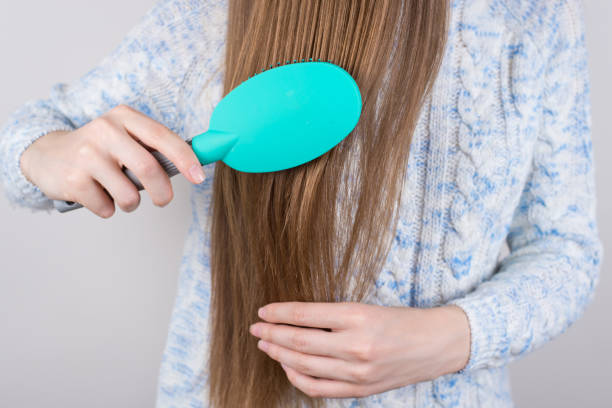
- Eat a nutritious diet: A balanced diet rich in vitamins, minerals, and proteins is essential for healthy hair. Include fruits, vegetables, lean proteins, and whole grains in your meals to promote hair growth and strength.
- Stay hydrated: Drinking an adequate amount of water hydrates your hair follicles, promoting moisture and preventing breakage. Aim for at least 8 glasses of water per day to keep your hair healthy and lustrous.
- Avoid excessive heat styling: Heat styling tools like flat irons, curling irons, and blow dryers can damage your hair over time. Limit their use and always apply a heat protectant spray before styling to minimize heat-related damage.
- Protect your hair from the sun: Just like your skin, your hair can also suffer from sun damage. When spending time outdoors, wear a hat or use a hair product with UV protection to shield your locks from harmful UV rays.
- Handle wet hair with care: Wet hair is more fragile and prone to breakage. Avoid rough towel drying and use a wide-toothed comb or a brush specifically designed for wet hair to gently detangle without causing damage.
- Regularly trim split ends: Split ends not only make your hair look dull but can also lead to further breakage. Schedule regular trims every 6-8 weeks to remove split ends and maintain the overall health of your hair.
- Use a sulfate-free shampoo: Sulfates found in many shampoos can strip the natural oils from your hair, leaving it dry and brittle. Opt for sulfate-free shampoos that are gentler on your hair, preserving its natural moisture.
- Deep condition regularly: Treat your hair to a nourishing deep conditioning treatment at least once a week. This helps replenish moisture, repair damage, and keep your hair soft, shiny, and manageable.
- Avoid tight hairstyles: Pulling your hair tightly into ponytails, braids, or buns can cause tension and breakage. Opt for looser hairstyles or use hair-friendly accessories like scrunchies or silk hair ties to minimize damage.
- Be gentle when brushing: Use a brush with soft bristles or a wide-toothed comb to prevent unnecessary hair breakage. Start brushing from the ends and gradually work your way up to avoid tugging on knots and causing damage.
Ayurvedic Treatment for Hair Loss
Ayurveda, the ancient Indian system of medicine, offers a holistic approach to addressing hair loss concerns. With a focus on balancing the body, mind, and spirit, Ayurvedic treatments aim to not only prevent hair loss but also promote healthy growth. Here are some effective Ayurvedic remedies for hair loss:
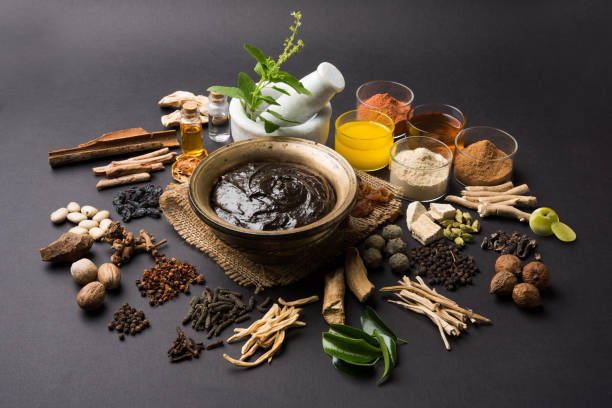
- Amla (Indian Gooseberry): Amla is a powerhouse of nutrients that nourish the hair follicles, promoting hair growth and preventing premature greying. You can consume it orally or apply amla oil directly to the scalp.
- Bhringraj: Known as the “king of herbs for hair,” Bhringraj is highly recommended for hair loss treatment. It strengthens hair follicles, prevents dandruff, and stimulates hair growth. You can use bhringraj oil or prepare a hair mask with bhringraj powder and water.
- Coconut Oil Massage: Regularly massaging the scalp with warm coconut oil enhances blood circulation, nourishes the hair follicles, and prevents hair fall. It also acts as a natural conditioner, leaving your hair soft and shiny.
- Aloe Vera: Aloe vera has soothing and healing properties that can rejuvenate the scalp, balance pH levels, and reduce dandruff. Apply fresh aloe vera gel directly to the scalp or use aloe vera-based hair products.
- Neem: Neem is a powerful herb known for its antibacterial and antifungal properties. It helps in treating scalp infections that can lead to hair loss. You can use neem oil or prepare a neem paste by grinding neem leaves and applying it to your scalp.
- Shikakai: Shikakai, a natural cleanser, has been used for centuries to promote hair growth and prevent hair loss. It strengthens the hair roots, adds shine, and reduces dandruff. Mix shikakai powder with water to make a paste and use it as a natural shampoo.
- Yoga and Meditation: Stress is a significant contributor to hair loss. Engaging in yoga and meditation practices can help reduce stress levels, balance hormones, and promote overall well-being, leading to healthier hair.
Remember, consistency is key when it comes to Ayurvedic treatments. Along with these remedies, it is essential to maintain a healthy lifestyle, eat a balanced diet, and avoid excessive use of chemical-based hair products.
Apart from this if you need any more treatment for a better scalp please click here.

